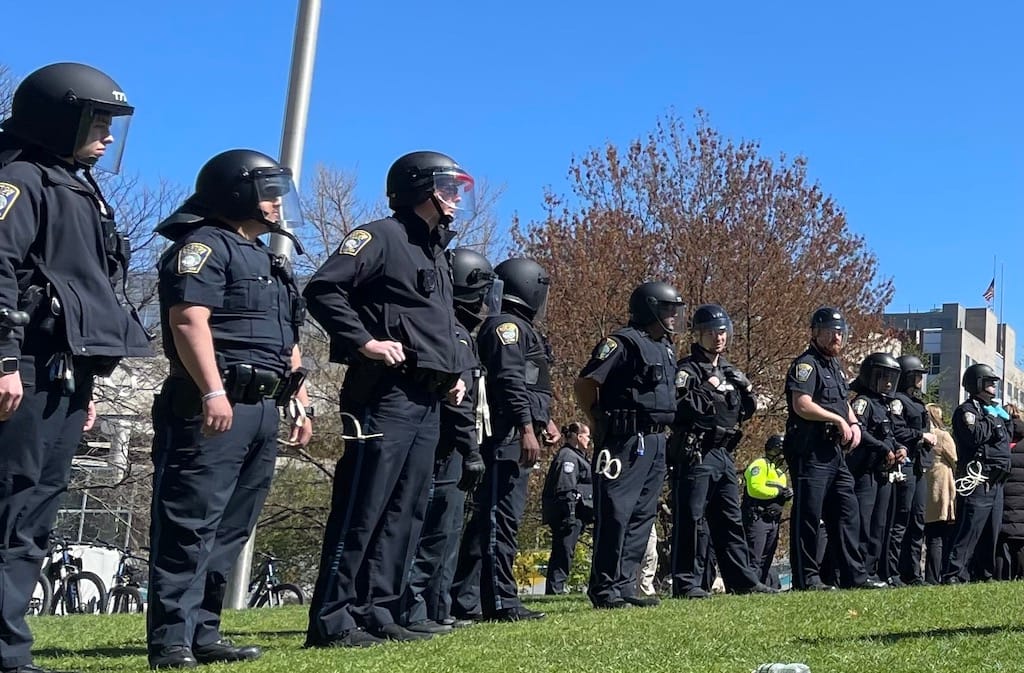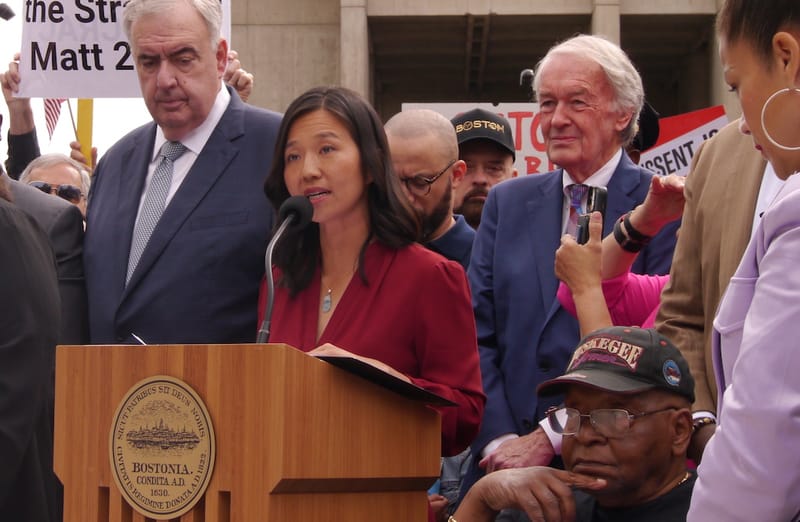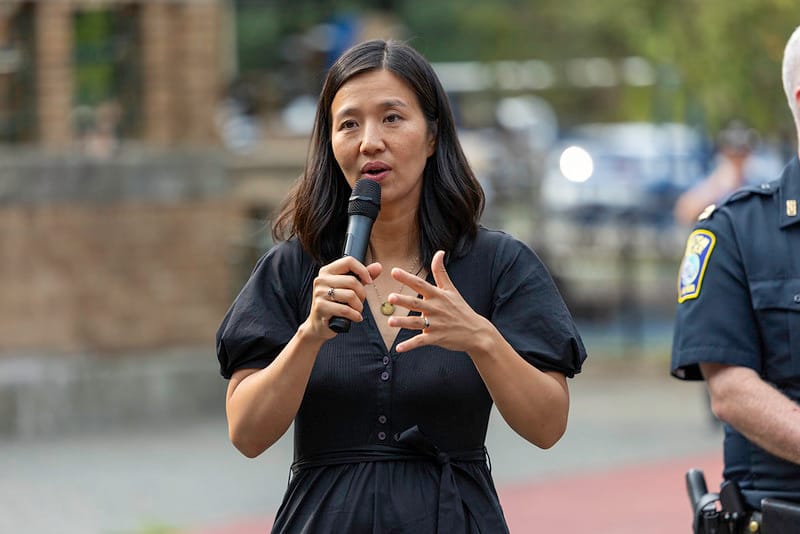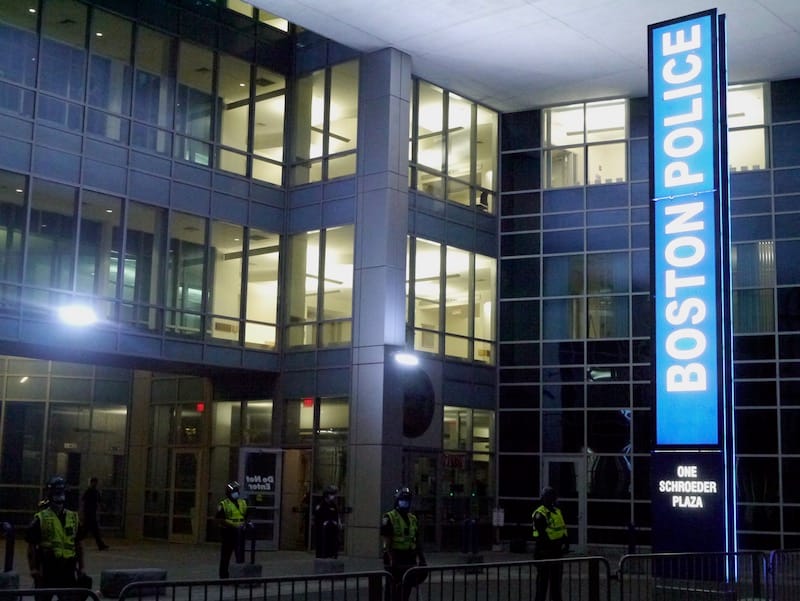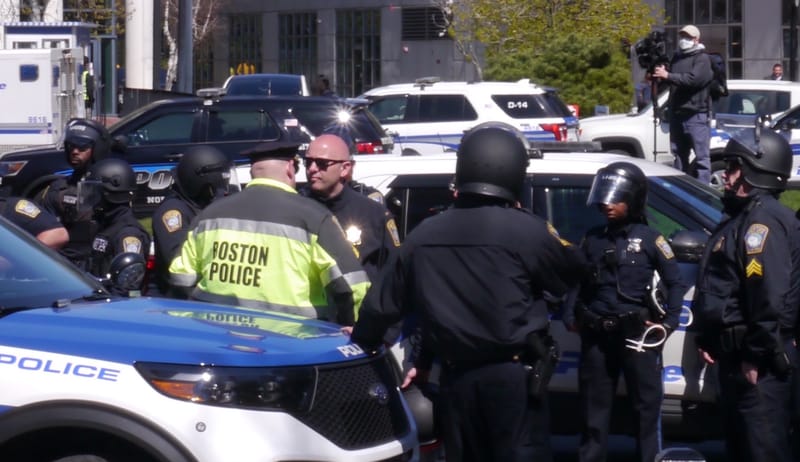Councilors block police surveillance technology
Wednesday, city councilors voted against approving the use of three social media surveillance tools by the Boston Regional Intelligence Center.
Nicole Abrams
Wednesday, city councilors voted against approving the use of three social media surveillance tools by the Boston Regional Intelligence Center. The report on these surveillance tools will be sent to the Surveillance Oversight Advisory Board, who will make recommendations to Mayor Michelle Wu.
“I think there’s a sliding scale between public safety and civil liberties,” said District 6 Councilor Ben Weber, who voted against approving the technology. “None of us want to see civil liberties trampled on.”
This vote comes a week after city councilors gathered for a hearing on these tools in which the Executive Director of the Muslim Justice League, Fatema Ahmad, and Nasser Eledroos, a computer scientist and former staffer at the Suffolk County district attorney's office, expressed their opposition to these tools and their use against the Muslim community.
The three social media surveillance tools that were denied by the city council, “SourceFeed” and “Search Feed” Databases, Chorus Intelligence Suite, and Tangles, were all said to have been used during “exigent circumstances.” The Boston Police Department gained access to SITE technologies and Chorus in February 2025. The police department did not have access to Tangles as of June 2025.
All of these technologies had been used in 2023 and 2024, prior to the June 5 letter that was sent by the Boston Police Commissioner Michael Cox to City Council President Ruthzee Louijeune to report on the tools this year.
According to the city of Boston’s Ordinance on Surveillance Oversight and Information Sharing, the Boston Police Department must report on the use of technologies used under exigent circumstances 30 days after the end of its use.
Ahmad stated during the hearing that the police did not follow the correct procedures when using these technologies.
“The point of this ordinance was to provide transparency and make sure that the city council, and logically through city council that community members, get to have a say in what technology BPD has access to,” said Ahmad in an interview.
During last week’s hearing, Councilor Henry Santana said that the administration acknowledged at a hearing the week prior that this report was late and that it would not be late next time. Santana also pointed out that the administration did not provide any reason as to why it was late.
During Wednesday's hearing, councilors expressed concern about approving the department’s use of the technology after police failed to notify them of its use within 30 days, as required by the ordinance.
“I think it’s important as a body that we don’t render this ordinance toothless,” Louijeune said.
Louijene joined District 9 Councilor Liz Breadon, at-large Councilor Julia Mejia, District 5 Councilor Enrique Pepén, Weber and District 4 Councilor Brian Worrell in voting against approving the technology. Voting in favor were District 8 Councilor Sharon Durkan, District 3 Councilor John Fitzgerald, District 2 Councilor Ed Flynn and at-large councilors Henry Santana and Erin Murphy.
Durkan, who spoke with representatives of the police department prior to the hearing, said the believed they would not violate the ordinance again.
“I got an assurance that would make more of an effort to make sure that they’re going to the Council and abiding by the ordinance,” she said.
In addition to having concerns about following the correct procedures set out in Boston’s Surveillance Ordinance, both Ahmad and Eledroos expressed their concern over BRIC’s targeting of Muslim communities and pro-Palestine groups and their activities.
“It’s not just that they are looking at the events that are happening,” said Ahmad, “but they are putting out situational awareness reports about these movements and sharing out to both private and public agencies and partners about these events as if they are of concern.”
Documents obtained by The Flipside show BRIC surveillance of events and activities related to the Israel-Hamas conflict. Social media surveillance of these events mainly focused on the activities of pro-Palestinian protest groups, including those at local universities. The document stated that the information within this report involved activities protected by the First Amendment and was only meant for “operational planning in the interest of assuring the safety and security of the demonstrators and the public.”
During the hearing, Eledroos explained that social media surveillance algorithms are not put under the same scrutiny as forensic evidence.
“They can deprive someone of rights or due process simply by making generalized assumptions about what someone might say online,” said Eledroos.
Councilor Ed Flynn, however, believes that these technologies are an important part of keeping Boston safe.
“I believe surveillance tools make the city safer. And the men and women of the Boston Police Department, and their professionalism and how they conduct their job is also important,” said Flynn.
Councilor Weber, who serves as the city council representative on the Surveillance Oversight Advisory Board, said that he believes social media surveillance raises issues about whether it is able to increase public safety.
“It certainly seems like a majority of the time it ends up flagging only a certain kind of activism and it's not obvious to me what the benefit is to the public of us doing that,” said Weber.
Ahmad also said of the potential civil rights violations: “All of these tools, particularly these social media analysis tools, sweep up data and information about people who are not suspected of any violence or anything, and so it's pretty concerning that they could be looking at folks who are just engaging in free speech activities.”
According to the city’s surveillance ordinance, after the council rejects surveillance technology acquisition, the matter is referred to the city’s Surveillance Oversight Advisory Board — which includes representatives from the police department, appointees from the mayor’s office and and a city councilor. Weber currently sits on the board. After the board makes a recommendation to the mayor, she can resubmit a request for the technology acquisition to the council.


